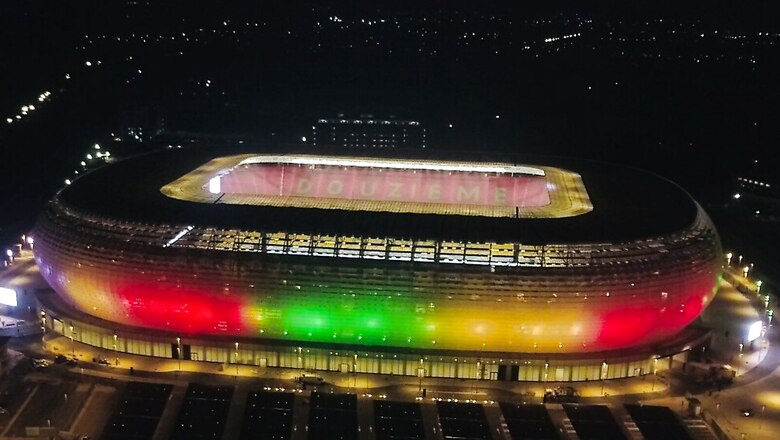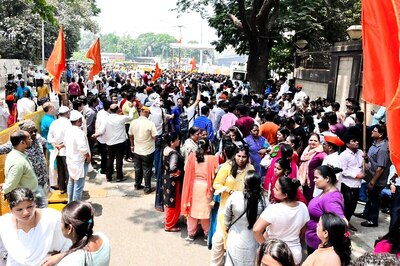
views
Thousands of Senegalese gathered on Tuesday for the inauguration of a 50,000-seater stadium aimed at making the country Africa’s go-to venue for international events.
The stadium is in Diamniadio, a town being built about 30 kilometres (20 miles) from the capital Dakar, for which an express train link opened in December.
The venue, for now, called the Stade de Senegal, will be the only one in Senegal that will be certified for international football.
The country’s last major stadium, Lat Dior, in the region of Thies, 70 kilometres from Dakar, lost its certification from the Confederation of African Football (CAF) in May last year.
Jubilant crowds came by bus and train for the inauguration, which follows Senegal’s dramatic victory at the Africa Cup of Nations (AFCON) on February 6.
The new stadium was built in just 18 months by Turkey’s Summa construction company, at a cost of 156 billion CFA francs ($270 million / 238 million euros).
Senegalese President Macky Sall, Turkish President Recep Tayyip Erdogan and FIFA boss Gianni Infantino were among the VIPs scheduled to attend Tuesday’s inauguration.
An exhibition match will be part of the show, with Senegalese legends such as Aliou Cisse — the current coach of the national side — opposing a team of African all-stars, including Cameroon’s Samuel Eto’o and Didier Drogba of Ivory Coast
“It’s a source of pride to have a stadium as beautiful as this in Senegal. The country needed it to restore its footballing image,” said one fan, Bamba Dieng, 24.
“I’ve never seen such a great stadium. I hope it will be properly maintained so that it lasts for a very long time,” said Ibou Ngom, 29.
Mbaye Jacques Diop, a communications advisory at the ministry of sports, said the project was part of a programme to make Dakar a “sporting hub” for Africa.
It would mean an end to matches transferred to Asia because the continent lacked infrastructure, he said.
The first big competitive match will be on March 29.
Senegal, who beat Egypt to take the African title, meet the Pharaohs again in a World Cup qualifier.
Senegal has launched a programme to refurbish its stadiums before Dakar hosts the Summer Youth Olympics in 2026.
The country’s biggest sporting venue is the 60,000-capacity Leopold Sedar Senghor Stadium built in Dakar in 1985.
Read all the Latest Sports News and Breaking News here















Comments
0 comment